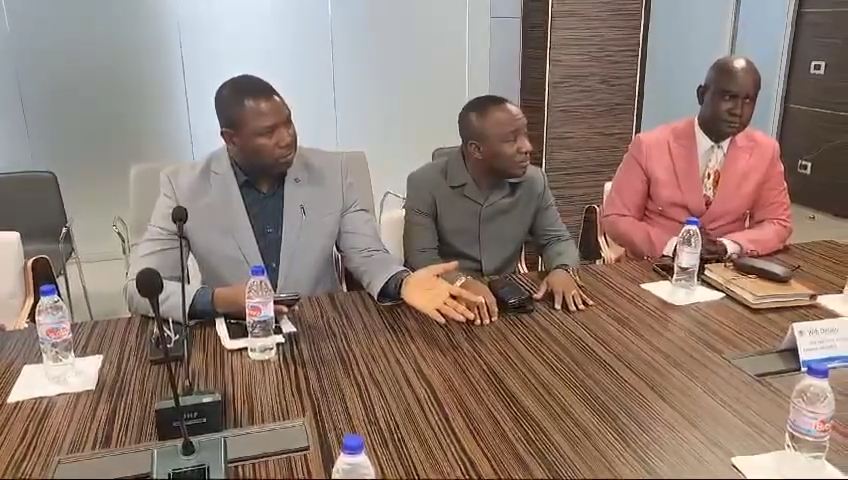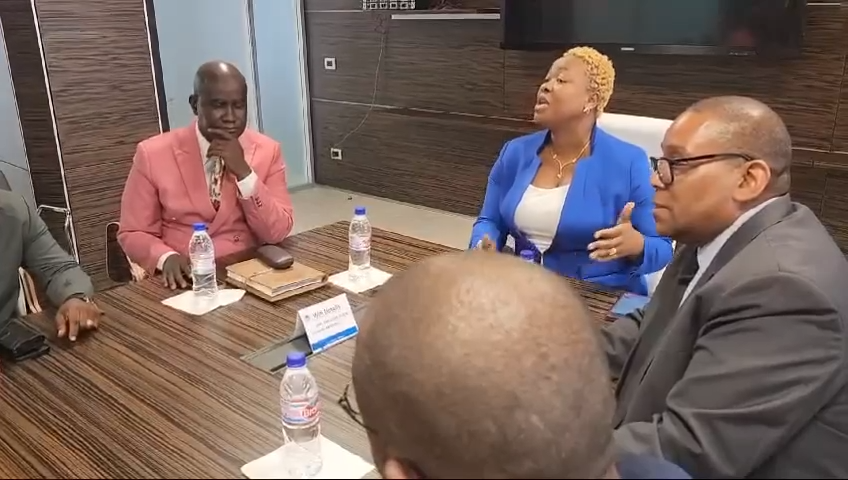Even against the Supreme Court’s injunction, it seems that President Joseph Nyuma Boakai is committed to dismissing all government employees holding tenured posts. The Supreme Court recommended on February 26, 2024, that the President hold off on taking any steps pertaining to the dismissal of officials until the five commissioners of the Liberia Telecommunications Authority (LTA) had their lawsuit against the government settled.
Nevertheless, President Boakai dismissed National Social Security and Welfare Corporation (NASSCORP) Director General, Demitt von Ballmoos, defying the Supreme Court’s advice. Former President George Manneh Weah extended VonBallmoos’ tenure in 2022 for an additional four years.

President Boakai promptly named Cllr. Moifee Kanneh as the Officer in Charge in his stead, acting as interim Director General until a permanent replacement was selected. Interestingly, Kanneh is on the board of the Liberia Petroleum Refining Company (LPRC) at the moment.
During the Weah administration, Cllr. Kanneh, a qualified attorney, represented the opposition bloc in court. It’s interesting to note that he is also Gbarpolu County Senator Gbotoe Kanneh’s brother.
According to people close to the president, President Boakai was duped into believing that von Ballmoos was gravely sick in the US and would not live. In response to this knowledge, the President dismissed vonBallmoos.
VonBallmoos, however, quickly emphasized that he was, in fact, on vacation and would shortly return to Liberia. President Boakai maintained his decision despite this information, ostensibly motivated by the need to show that the dismissal was appropriate and unaffected by outside forces.
Concerns have been raised regarding the alleged flouting of established Liberian laws and regulations, casting shadows over the government’s commitment to transparency and adherence to the rule of law.
NASSCORP is tasked with managing pension funds and providing social security services to Liberian citizens and residents.
Liberian journalist and prominent Talk Show Host, Julius Jeh, decried the early misrule of the government in what he termed as “despicable and a serious blot on the early governance credentials of the Unity Party-led government.”
Journalist Jeh further commented in a Facebook post, including a video published (also by Kukatonon News):
“How on the planet the Presidency doesn’t announce a person as an Officer in Charge of an entity and Party officials, Senators and other government officials will accompany said person to take over the entity?
Now, NASSCORP is an entity with tenured officials who are still working, and with no deference to them, the law and the Presidency, these “enlightened” and “more sophisticated” people could do such thing?
Wow! It seems the more we change the more we remain the same or worse.
See how the lady is schooling them like elementary students!
To see Senator Prince Kermue Moye Sr., Reverend Luther Tarpeh and Mr Amin Modad in this is even more disheartening.
The thing power can do to people in this country ehnn! Hmmmm!”; Jeh lamented.
The circumstances make it unclear how vonBallmoos plans to contest his dismissal and if other people impacted by such LTA acts will take legal action. The delicate balance that Liberia has between executive authority and tenure protection has come to light as a result of President Boakai’s actions.
Critics argue that the Boakai administration’s apparent disregard for legal norms in its management of tenure positions sets a dangerous precedent, eroding public trust in the government’s commitment to upholding the rule of law. They assert that such actions could have far-reaching consequences, not only for NASSCORP but also for the broader governance framework of Liberia.
In response to these allegations, government spokespersons have defended the administration’s actions, citing that those affected have worn paraphernalia of the former ruling party, the Coalition for Democratic Change (CDC).
The controversy surrounding tenure positions in NASSCORP comes at a critical juncture for Liberia, as the country grapples with economic challenges exacerbated by the COVID-19 pandemic. Against this backdrop, the need for effective governance and institutional stability has never been greater, making it imperative for the Boakai administration to address the concerns raised and demonstrate its commitment to upholding the rule of law.
As calls for accountability grow louder, all eyes remain on President Joseph Nyuma Boakai and his government to navigate the turbulent waters of governance while staying true to the principles of legality, transparency, and respect for democratic norms. The manner in which the administration responds to these allegations will not only shape its legacy but also determine the trajectory of Liberia’s democratic journey in the years to come.

